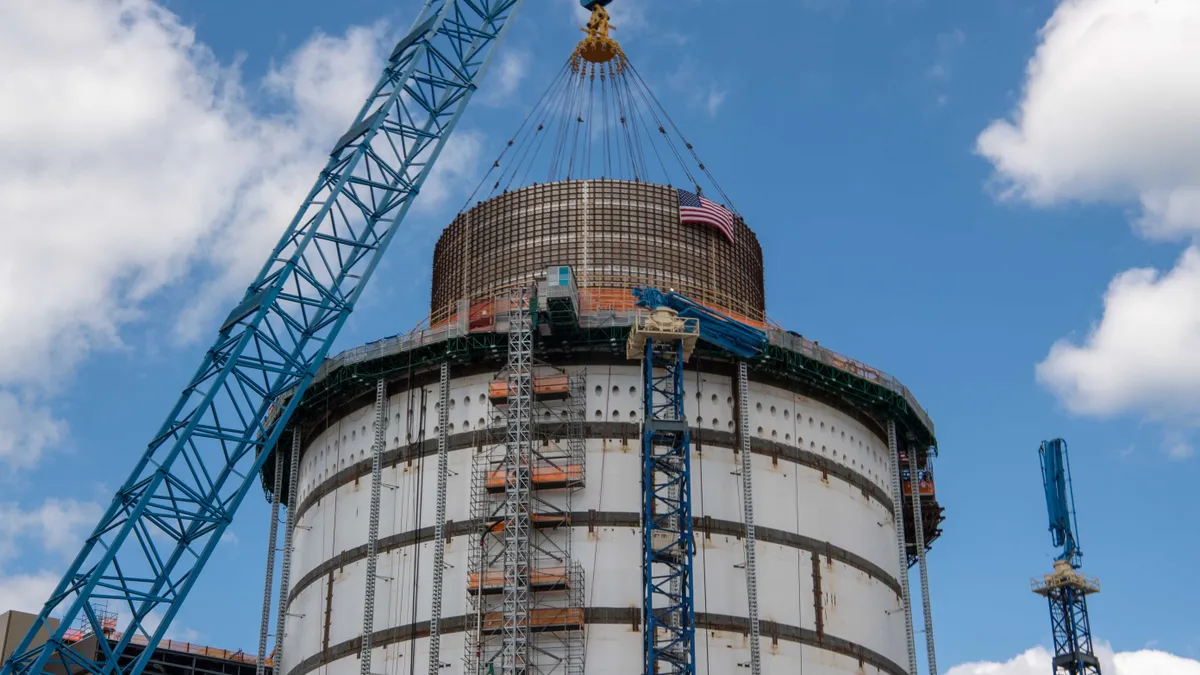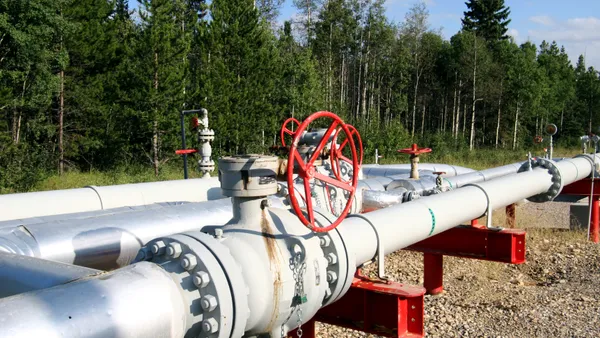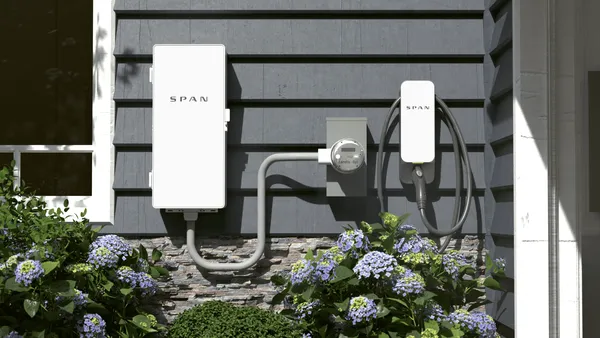Dive Brief:
- The price tag for two nuclear reactor units at Southern Company’s Plant Vogtle has increased again amid staffing issues and added maintenance costs, CEO Tom Fanning confirmed during the company’s third quarter earnings call Thursday.
- Subsidiary Georgia Power recently announced another delay in the nuclear project. The company now expects Unit 3 to be in service in the third quarter of 2022 and Unit 4 to be in service in the second quarter of 2023, a three-month revision for both units.
- Overall, Southern Company reported third quarter earnings of $1.1 billion, down from $1.3 billion in the same period in 2020. The utility did add more than 40,000 residential electric and 20,000 residential natural gas customers, while retail electric sales rose 3% from last year as the economy continues to recover from the COVID-19 pandemic.
Dive Insight:
Vogtle, the only nuclear plant under construction in the U.S., was originally scheduled to have its first unit be operational starting in 2016, but a string of technology and operational problems have ballooned the timeline and cost projections. The latest delay comes just months after the Nuclear Regulatory Commission (NRC) completed a special investigation of the project over safety issues related to the electrical raceway system, which paused work and contributed to another delay.
On Thursday’s call, Fanning said those issues had been resolved, but that the number of issues requiring remediation had increased. The project, he said, had also experienced “higher-than-expected attrition and slower-than-expected onboarding” of engineers and other contractors, in part because of the COVID-19 pandemic.
Unit 3, Fanning said, has completed hot functioning testing, the final major stage before fuel loading that verifies the operation of reactor components, and is now waiting on receipt of an operating license from NRC. Assuming no delays, he said, that would put the project on pace to load fuel in May 2022 and become operational in the third quarter. Construction on Unit 4, meanwhile, is approximately 89% complete, although it has been slowed because some staff has been shifted to complete work on Unit 3.
Although Fanning expressed optimism that the project would move forward smoothly and that the company “will not sacrifice safety or quality to meet schedule,” the cost of the project continues to rise. Georgia Power’s share of the two units rose another $264 million. The project's overall cost, originally priced at $14 billilon, now sits at more than $28 billion. The company is in a cost-sharing agreement with other owners and could trigger a threshold where Georgia Power would have to pick up all of the cost overruns; Fanning said there has been “some discussion” with other co-owners about cost sharing, but did not disclose any details.
The Georgia Public Service Commission voted unanimously this week to allow Georgia Power to bill customers for $2.1 billion of the costs for Unit 3, although it will not be able to recover that money until a month after the unit goes into commercial operation.
Fanning also said that Southern Company is on pace for its long-term goal of being a net-zero greenhouse gas emitter by 2050, especially with the Vogtle project moving forward. When asked about the ongoing infrastructure bill talks in Washington — which originally included a plan to incentivize utilities to adopt clean energy and punish those who don’t — Fanning said he wanted to see Washington pick up more incentive-based programs. He added that he was “particularly interested in anything that, as we go through the transition of the fleet to net zero, will keep prices as low as possible … and keep America in a very strong position.”














